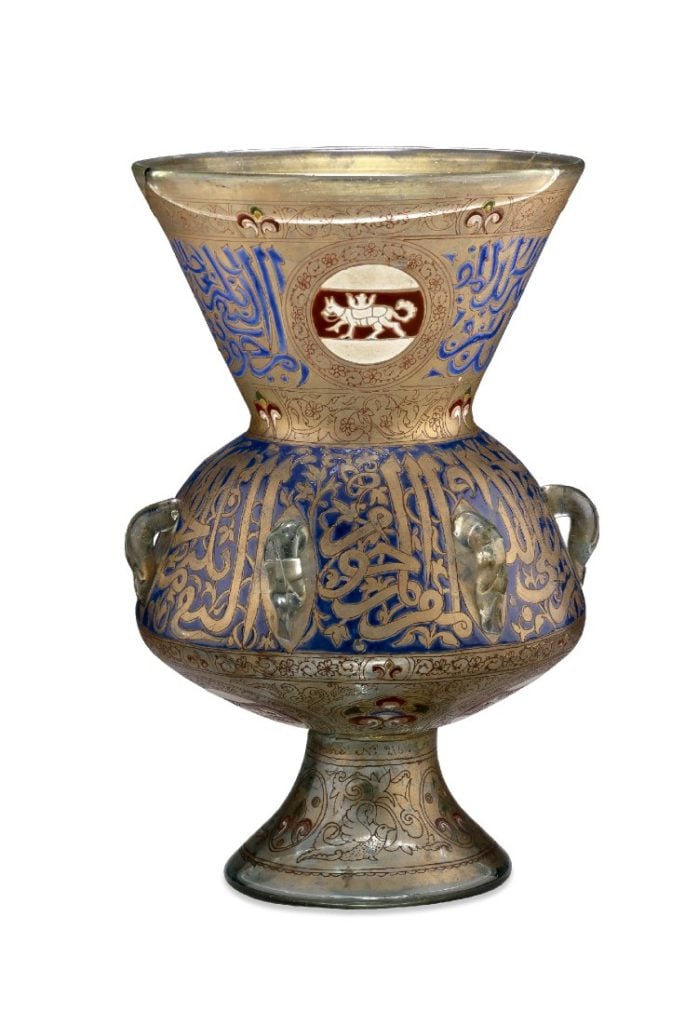Art World
Stolen Mamluk Mosque Lamps Returned to Cairo
They had made their way into collections in the UAE.

They had made their way into collections in the UAE.

Amah-Rose Abrams

Two Mamluk mosque lamps, stolen from the Egyptian national collection in 2014, have been returned to the Egyptian Ministry of Antiquities from the United Arab Emirates in a ceremony in Cairo, according to the Art Newspaper. They will now be housed in the new National Museum of Egyptian Civilization.
The two medieval lamps, the likes of which can fetch up to $2 million at auction, had been stolen from storage facilities in Cairo and replaced with replicas.
London-based academic and Mamluk expert Doris Behrens-Abouseif reported the items to the Art Loss Register after an unnamed dealer sought her advice regarding the lamps.
Behrens-Abouseif told TAN that it was solely due to the pressure of publicity that Egyptian authorities admitted that the lamps had been stolen at all, raising questions about the number of other stolen Mamluk-period objects in circulation.
“I assume there are many more things but these are ones by pure accident I learned about,” she revealed.
One of the lamps in question had been sold to a collector in the Gulf for £500,000 ($613,000), and another to a buyer in Abu Dhabi, meaning negotiations between Egypt and the UAE were needed to ensure the return of these rare artifacts.
The lamps are especially rare, as many of Cairo’s prized collection of Mamluk lamps were destroyed after a bomb hit the Islamic Museum after the government was deposed during the Arab Spring.
The thefts became apparent after images of a lamp carrying the a label from an Egyptian museum were sent to collectors in the UK, Istanbul, and the Gulf.
So far, three lamps stolen from the museum have been recovered: one from London in 2015, and now these two, one of which was identified by a sword bearer’s mark, the other recognized as coming from Cairo’s Sultan Hassan Mosque.
The return of the lamps appears part of a recent, more active pursuit by Egyptian authorities of their stolen antiquities. The country has, for example, signed a memorandum with the United States to try to restrict the import of stolen artifacts.